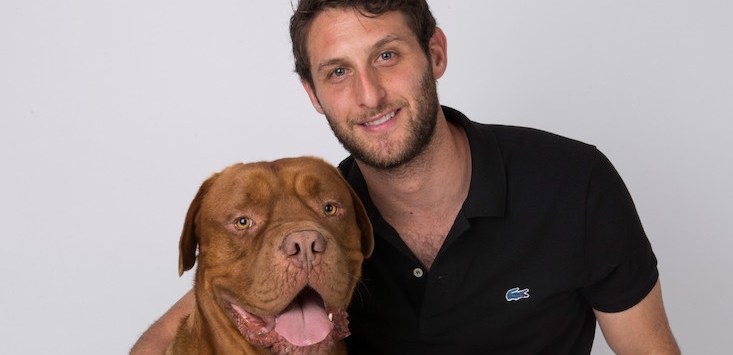
WAG founder and CEO Jeremy Goldman.
There is no sugar-coating it. This year’s Christmas season is going to be unlike any that small businesses in Australia have seen before.
As each state goes through changes in gathering numbers and restrictions more generally, consumers are opting to move their regular Christmas shopping habits online.
The period between Black Friday and Christmas itself is typically the biggest time for shopping across Australia.
But as Australia Post reported earlier this year, in the initial stages of the pandemic, online sales volumes were up 6.8% compared to our record-breaking Christmas season just four months earlier.
While the recession may prevent consumers from splashing out the $18.8 billion they spent on Christmas in 2019, it’s still safe to say we’re going to see a huge surge in online orders this holiday season.
For businesses that have been hit hard by trading restrictions, such as those in Melbourne, this is going to be increasingly difficult to manage.
Even as restrictions are lifted and Melbourne opens once again, those who haven’t been able to prepare for the Christmas season may be in for a trading shock with higher demand across both online and in-store channels.
As the owner of a small business in the niche pets industry, I’ve been the fortunate beneficiary of increased demand for dog treats, driven by COVID-19.
So I know just how hard it is to operate with a reduced, at-home workforce, all while trying to meet the heightened needs of customers.
Businesses that aren’t prepared for an influx of orders come Black Friday and the Christmas season will find their potential to rebound after the pandemic take a severe hit.
For those still trying to work out how to run a business under ‘COVID normal’, these are the most important areas you can focus on to ensure you are ready for this surge in online demand.
Get your processes in place and test them now
All businesses operating in the new normal must have their own COVIDSafe plan in place. Now is the perfect time to make sure your processes are as streamlined as possible.
With more pressure placed on our delivery partners to service all of Australia, we knew just how important it was to communicate delivery delay expectations to our customers.
I found myself in our warehouse more during Melbourne’s harsh stage four lockdown than ever before, as I helped out on weekends to make sure we could keep up with online orders.
When you’re juggling comms between on-site staff and your remote workers, consider using software to streamline communication across different channels.
And if you are operating at less-than-full capacity now while the shops are a bit quieter, make sure to allocate and plan for those extra hours in the lead-up to the holiday season to make sure you can keep up with demand.
Online shopping for Christmas has started earlier than usual, as consumers prepare for delivery delays due to COVID-19.
So, if you are testing different processes to find what works best for you, decide on these as soon as possible so your team has time to implement them properly before the end of the month.
Be transparent with your staff and customers
With so much uncertainty at the moment, it’s crucial to take care of the people who are most important to your business: your staff and your customers.
Being transparent about shipping times will help your customers plan their purchasing behaviour around realistic expectations.
Make sure you have implemented the right IT to ensure your customers are kept informed when they need to be, whether it’s a website pop-up or an email marketing campaign.
In this time of delivery uncertainty, a Christmas order cut-off message and date on your website and social media channels may help to set customer expectations.
Likewise, it’s important to help settle your staff’s doubts at a time when job security is a high concern.
Make sure you or your managers are having regular one-on-ones with staff, so everyone knows what to expect.
Particularly for those operating with fewer staff than usual, it is incredibly important to keep your workers informed of things such as whether shifts might change, or if expectations during these times are going to be a bit higher.
Make sure your distribution channels are ready to handle the increased demand
If you’re already finding yourselves struggling to get orders out on time or trying to do more with less staff, then look at how you can improve your distribution channels across the busy season.
Early on during the pandemic, I engaged a third-party logistics partner to keep on top of any delivery or delay issues both locally and internationally.
This allowed us to manage minimal traffic through our business headquarters at a time when we were working with fewer staff while trying to socially distance.
Think about what you can realistically outsource to make sure that the reputation of your brand is where you want it to be.
Poor reviews from disgruntled consumers during the Christmas season are not going to do your business any favours when it comes to trying to rebound in 2021.
Invest in PPE for the longer run
Despite different states running more closely to normal than others, there’s still no telling when business operations in Australia as a whole are going to get back to the normal we used to know.
If you are yet to invest in PPE for your employees, make sure you prepare for the medium to long-term, rather than just the next few months.
Investing in spare PPE for future staff, particularly Christmas casuals, and having the processes in place to keep it sanitised and protected, will save you money in the long run.
Make use of funding or grants where you can
In addition to the state and federal funding already available to businesses over the last few months, the 2020 federal budget has announced asset write-offs for any business with a turnover of less than $5 billion.
Businesses will also be able to offset losses against previous profits, as well as make use of fringe benefit tax exemptions if they are retraining staff or moving them to different roles.
However, there are also many other organisations offering grants or funding opportunities for businesses around Australia, so have a good look at what else you might be eligible for.
Some councils are offering funds for PPE gear and marketing materials, while we’ve already seen organisations such as Hyundai and Facebook offer advertising competitions or small business funding.
With the new announcements from the budget, make sure you chat with your accountant to see what you’re eligible for, as well as keep an eye on any external sources to see when deadlines are opening or closing.
That little bit of extra funding could be the difference between missing out on sales or making the most of the Christmas rush.
Handpicked for you

Why Australian suburbs are the future of retail



COMMENTS
SmartCompany is committed to hosting lively discussions. Help us keep the conversation useful, interesting and welcoming. We aim to publish comments quickly in the interest of promoting robust conversation, but we’re a small team and we deploy filters to protect against legal risk. Occasionally your comment may be held up while it is being reviewed, but we’re working as fast as we can to keep the conversation rolling.
The SmartCompany comment section is members-only content. Please subscribe to leave a comment.
The SmartCompany comment section is members-only content. Please login to leave a comment.